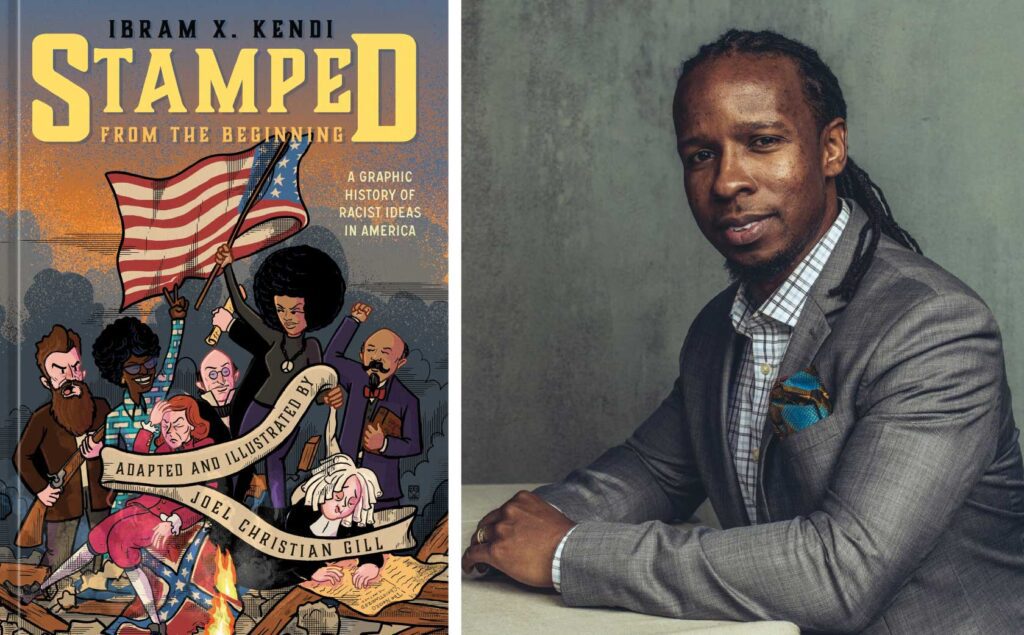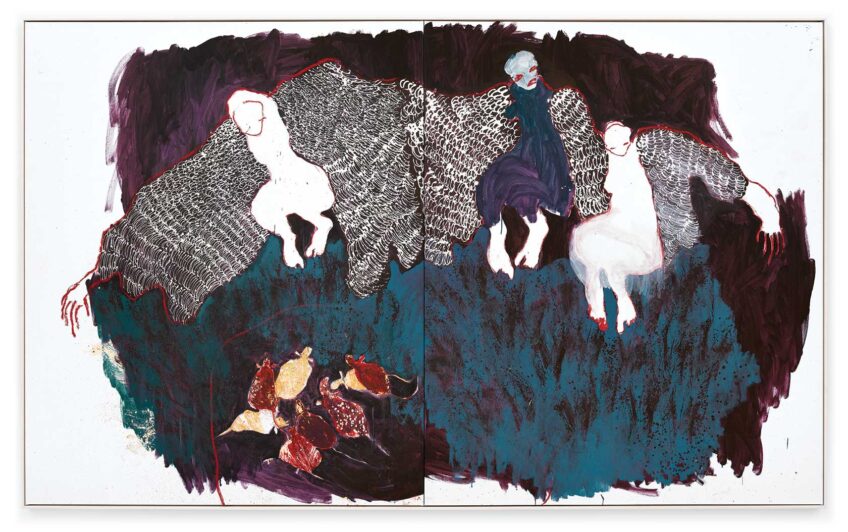Racism illustrated: Ibram X. Kendi, Joel Christian Gill collab. on graphic history of racist ideas in U.S.

Historian, academic and writer Ibram X. Kendi, in collaboration with Joel Christian Gill, chair of MFA program in Visual Narrative at Boston University, this month released a graphic version of Kendi’s 2016 book, “Stamped from the Beginning: The Definitive History of Racist Ideas in America.”
The new version, with Ten Speed Press, is an illustrated history of the ideologues and ideologies creating racist constructs and systems in the country. Antiracism is also in the foreground of the book’s analysis. An economic interpretation of history, identifying individual racist and antiracist actions shaped by capitalism, adds depth.
Irreverent and original, the book, as Gill noted to the BU Today website, challenges historical narratives: “Trying to make something as serious as racism and the history of racist ideas in America funny is difficult. I feel most of the jokes are funny-not funny.”
Kendi, founding director of the Boston University Center for Antiracist Research, spoke this month to the Banner.
What criteria do you have in mind when you identify an action as racist in the book?
This book is about identifying racist and antiracist ideas. Racist ideas lead to racist actions. I define any notion that suggests a racial group is inferior as racist. Two hundred, one hundred years ago, statements were made, such as: “Blacks are inferior.” Nowadays, the statements are more: “This is what is wrong with you as a Black community.” Any connotation of hierarchy based on race, I define as racist.
The book is in a tradition of graphic books that address weighty topics. Were any of these influential?
For me, the graphic novels that were most influential were the “March” series co-written by Congressman John Lewis that tell the story of the civil rights movement. The third book in that series won a National Book Award at the same time as I won for the original, “Stamped from the Beginning: The Definitive History of Racist Ideas in America.” I saw in his series the power to tell history in the form of a graphic novel.
A lot of complex ideas are identified in your new graphic book, and some of course are linked to books by other authors. Can you recommend a reading list for youth, say between 16 and 25 years old, seeking background?
Here are a few: Dorothy Roberts wrote, “Fatal Invention: How Science, Politics, and Big Business Re-create Race in the Twenty-First Century”; “The Autobiography of Malcolm X”; “Black Reconstruction in America 1860-1880,” by W.E.B. Du Bois; and “White Over Black:
American Attitudes toward the Negro, 1550-1812,” by Winthrop D. Jordan.
In what ways is the work of the psychiatrist and political activist Dr. Frantz Fanon a factor in understanding historical and contemporary racism in the
United States?
Fanon’s writing on colonialism is one aspect of the effects of racism on colonized people, having a colonized mind. Part of that mind is valuing whiteness and white culture over Black culture. I address that in my book by discussing assimilationist ideas that are similar.
Last we spoke in July 2020, you had just founded and been made the director of the Boston University Center for Antiracist Research. Three years later, how have your views of Boston’s challenges changed?
I feel like I’m still learning about the city three years in. After all, the city was closed in for two years due to the pandemic. I still feel like I’m learning its challenges. What I do know is that it’s not unfamiliar. I’ve lived up and down the East Coast. There are significant gaps here in terms of health disparities, economic disparities and racial disparities.






